Cell Reproduction -> molecules
Molecules
A molecule is a group of two or more atoms that are chemically bonded together. These atoms can be of the same element or different elements. The bonds that hold the atoms together are called chemical bonds.
Types of Molecules
There are two main types of molecules:
- Diatomic Molecules: These molecules are composed of two atoms of the same element. Examples include oxygen (O2), nitrogen (N2), and hydrogen (H2).
- Compound Molecules: These molecules are composed of atoms of different elements. Examples include water (H2O), carbon dioxide (CO2), and glucose (C6H12O6).
Formation of Molecules
Molecules are formed through chemical bonding, which can occur through different types of bonding:
- Covalent Bonding: In covalent bonding, atoms share electrons to form a stable outer electron configuration. This type of bonding is common in diatomic molecules and compound molecules.
- Ionic Bonding: Ionic bonding occurs when one atom transfers electrons to another, resulting in the formation of ions that are held together by electrostatic forces. This type of bonding is found in compounds composed of ions.
- Hydrogen Bonding: Hydrogen bonding occurs between molecules that contain hydrogen atoms bonded to highly electronegative atoms such as oxygen, nitrogen, or fluorine. It is a weaker type of bonding compared to covalent and ionic bonding.
Properties of Molecules
Molecules exhibit various properties based on their composition and bonding. Some important properties include:
- Polarity: Some molecules have regions of partial positive and partial negative charge, making them polar. This property is important in understanding the behavior of substances in different environments.
- Solubility: The ability of a molecule to dissolve in a solvent is determined by its intermolecular forces and polarity.
- Reactivity: Molecules can participate in chemical reactions based on the arrangement of their atoms and the nature of their bonds.
- Physical State: Molecules can exist as solids, liquids, or gases at different temperatures and pressures.
Study Guide
To effectively study the topic of molecules, it is important to focus on the following key areas:
- Understanding the concept of chemical bonding and how it leads to the formation of molecules.
- Recognizing the difference between diatomic and compound molecules, and being able to identify examples of each type.
- Exploring the properties of molecules, including polarity, solubility, reactivity, and physical state.
- Practicing the drawing of Lewis structures and molecular models to visualize the arrangement of atoms within molecules.
- Applying knowledge of molecules to real-world examples, such as understanding the role of specific molecules in biological processes or environmental interactions.
By mastering these areas of study, you will gain a comprehensive understanding of molecules and their significance in the field of chemistry.
.◂Science Worksheets and Study Guides Seventh Grade. Cell Reproduction
Study Guide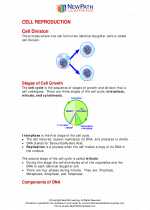 Cell Reproduction
Cell Reproduction  Activity Lesson
Activity Lesson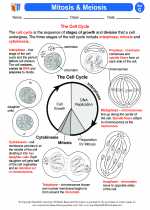 Mitosis & Meiosis
Mitosis & Meiosis  Worksheet/Answer key
Worksheet/Answer key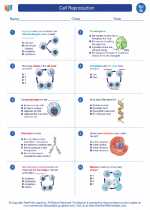 Cell Reproduction
Cell Reproduction  Worksheet/Answer key
Worksheet/Answer key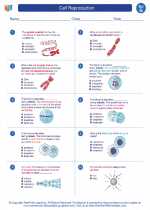 Cell Reproduction
Cell Reproduction  Worksheet/Answer key
Worksheet/Answer key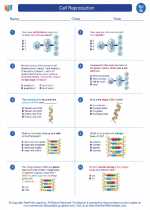 Cell Reproduction
Cell Reproduction  Vocabulary/Answer key
Vocabulary/Answer key Cell Reproduction
Cell Reproduction  Vocabulary/Answer key
Vocabulary/Answer key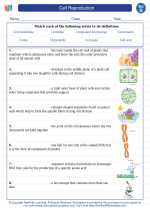 Cell Reproduction
Cell Reproduction  Vocabulary/Answer key
Vocabulary/Answer key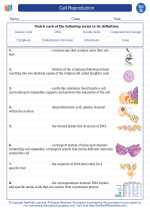 Cell Reproduction
Cell Reproduction  Vocabulary/Answer key
Vocabulary/Answer key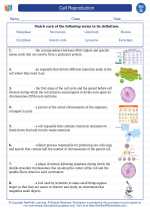 Cell Reproduction
Cell Reproduction  Vocabulary/Answer key
Vocabulary/Answer key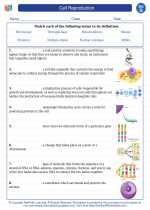 Cell Reproduction
Cell Reproduction  Vocabulary/Answer key
Vocabulary/Answer key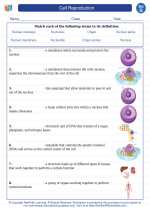 Cell Reproduction
Cell Reproduction  Vocabulary/Answer key
Vocabulary/Answer key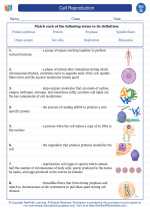 Cell Reproduction
Cell Reproduction  Vocabulary/Answer key
Vocabulary/Answer key Cell Reproduction
Cell Reproduction 

 Activity Lesson
Activity Lesson
 Worksheet/Answer key
Worksheet/Answer key
 Worksheet/Answer key
Worksheet/Answer key
 Worksheet/Answer key
Worksheet/Answer key
 Vocabulary/Answer key
Vocabulary/Answer key
 Vocabulary/Answer key
Vocabulary/Answer key
 Vocabulary/Answer key
Vocabulary/Answer key
 Vocabulary/Answer key
Vocabulary/Answer key
 Vocabulary/Answer key
Vocabulary/Answer key
 Vocabulary/Answer key
Vocabulary/Answer key
 Vocabulary/Answer key
Vocabulary/Answer key
 Vocabulary/Answer key
Vocabulary/Answer key

The resources above cover the following skills:
LIFE SCIENCE
From Molecules to Organisms: Structures and Processes
Gather and synthesize information to explain how prokaryotic and eukaryotic cells differ in structure and function, including the methods of asexual and sexual reproduction.